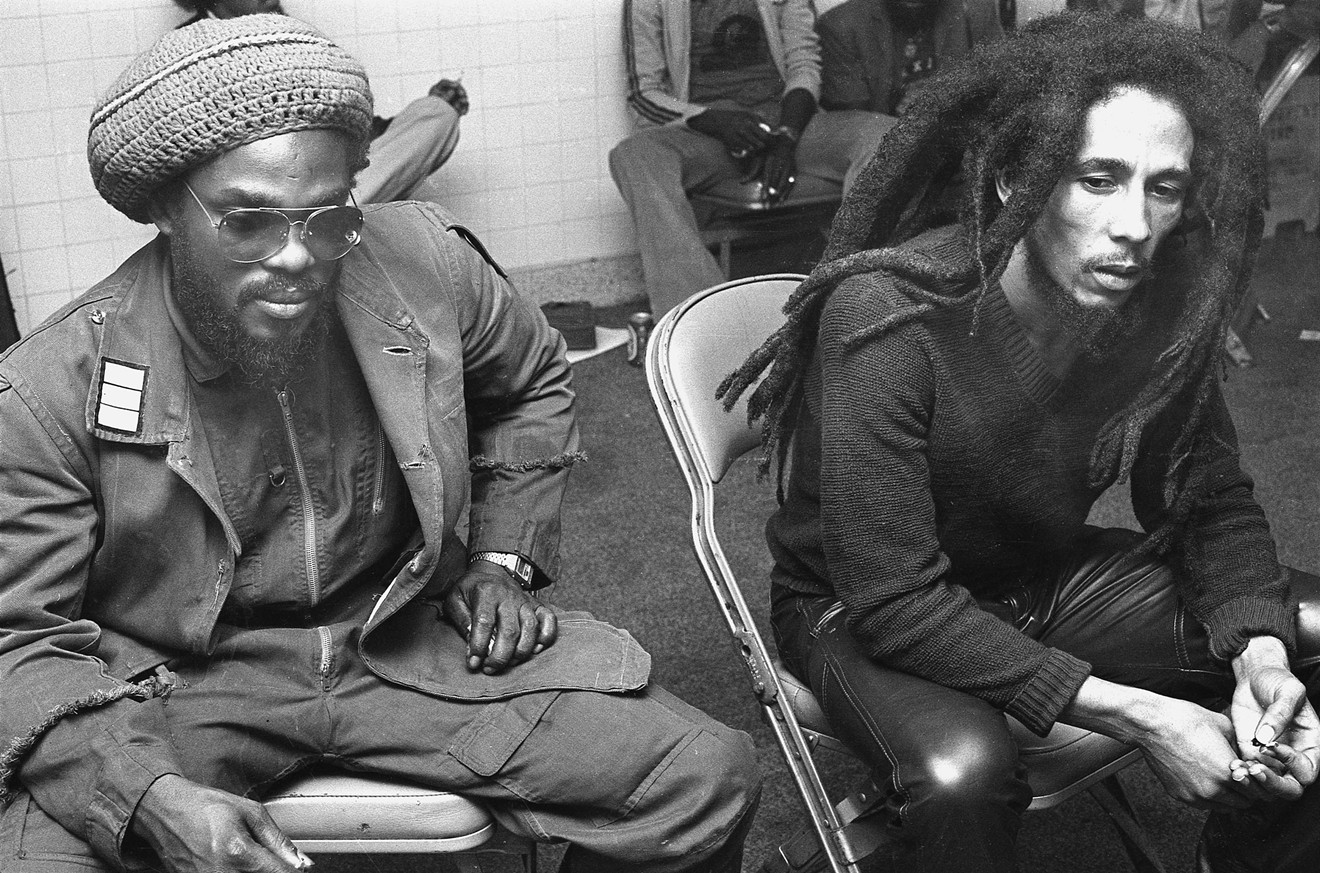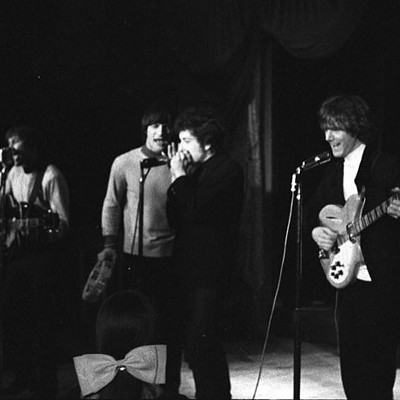So Much Things to Say: The Oral History of Bob Marley
By Roger Steffens
W.W. Norton, 464 pp., $29.95
By Roger Steffens’ account, there have been more than 500 books written about reggae king Bob Marley – and he probably has a good chunk of them on the shelves of his vast Reggae Archives facility. So one could not be faulted for thinking if yet another tome on the Tuff Gong is necessary. The answer to that question is simple and resounding: Ya, mon!
First, Steffens is a uniquely qualified author. As a reggae author, scholar, lecturer, expert, and hardcore fan, no one knows the genre in and out more than he does. He has given a slide lecture on the life and musical career of Bob Marley nearly 200 times over the years. He also spent a brief time on the road with the subject of this book himself.
But more importantly, Steffens has known and interviewed pretty much all the players in and around Marley’s life for more than 40 years. This book is the result of some 75+ of those sessions collected over those decades.
The list includes almost everyone who general history associated with Bob Marley from band members, business associates, mentors, students, lovers, friends and enemies. The list includes a complete span of personnel over his life like Peter Tosh, Bunny Wailer, Rita Marley, Junior Braithwaite, the Barrett brothers, Chris Blackwell, Coxsone Dodd, Cindy Brakespeare, Don Taylor, Danny Sims, Neville Garrick, to his mother and many of his children. Much of the Bunny Wailer material comes from an unpublished autobiography that Steffens worked with him on. And he does lament not being able to interview the reluctant musician Johnny Nash – an early supporter – before Nash passed.
Steffens arranges these remembrances and recollections chronologically and doesn’t shy away from the fact that many people interviewed have very different recollections of the same incident or situation. He also inserts his own comments and background throughout, which help guide the narrative along; rather than being intrusive, the offer a welcome wealth of information.
Of particular interest are the sections on Bob and the Wailers’ early recording career in Jamaica; his role as a political and religious leader beyond his music; the gun-fueled assassination attempt on his life; and the Smile Jamaica concert he played just two nights later, defiantly showing his injuries to the crowd as if to dare any killers to try again (with a bullet still lodged in his arm that he carried for the rest of his life); and, later, his sickness and eventual death from cancer at the age of 36 (36!) that started in his toe.
The illness was discovered after a soccer injury but, untreated, spread to his lungs and brain over the years. One doctor claims he had never seen so much cancer in a living person before. In his final months, either knowing the end was inevitable or casting his fate with the Jah of his Rastafarian religion, he found solace in a simple daily routine of a smoking a spliff, studying the Bible, and playing music.
The structure of the book, of course, leans more toward detailing of actual events in the life of Bob Marley and not so much musical analysis, but each of his records and concert tours still gets attention. In the end, So Much Things to Say is just as crucial to the Bob Marley Bookshelf as the gold-standard bios by Timothy White and Chris Salewicz. And though the subjects own comments about his life are few and fleeting in the book, those dozens of others color in the lines very, very well.
Support Us
Houston's independent source of
local news and culture
account
- Welcome,
Insider - Login
- My Account
- My Newsletters
- Contribute
- Contact Us
- Sign out

Wailers bassist Aston "Family Man" Barrett and a pensive-looking Bob Marley backstage at the San Diego Sports Arena dressing room, November 24, 1979. Marley is already looking gaunt from his cancer.
Photo courtesy of W.W. Norton
[
{
"name": "Related Stories / Support Us Combo",
"component": "11591218",
"insertPoint": "4",
"requiredCountToDisplay": "4"
},{
"name": "Air - Billboard - Inline Content",
"component": "11591214",
"insertPoint": "2/3",
"requiredCountToDisplay": "7"
},{
"name": "R1 - Beta - Mobile Only",
"component": "12287027",
"insertPoint": "8",
"requiredCountToDisplay": "8"
},{
"name": "Air - MediumRectangle - Inline Content - Mobile Display Size 2",
"component": "11591215",
"insertPoint": "12",
"requiredCountToDisplay": "12"
},{
"name": "Air - MediumRectangle - Inline Content - Mobile Display Size 2",
"component": "11591215",
"insertPoint": "4th",
"startingPoint": "16",
"requiredCountToDisplay": "12"
}
,{
"name": "RevContent - In Article",
"component": "12527128",
"insertPoint": "3/5",
"requiredCountToDisplay": "5"
}
]
KEEP THE HOUSTON PRESS FREE...
Since we started the Houston Press, it has been defined as the free, independent voice of Houston, and we'd like to keep it that way. With local media under siege, it's more important than ever for us to rally support behind funding our local journalism. You can help by participating in our "I Support" program, allowing us to keep offering readers access to our incisive coverage of local news, food and culture with no paywalls.
Bob Ruggiero has been writing about music, books, visual arts and entertainment for the Houston Press since 1997, with an emphasis on classic rock. He used to have an incredible and luxurious mullet in college as well. He is the author of the band biography Slippin’ Out of Darkness: The Story of WAR.
Contact:
Bob Ruggiero
Trending Music
- How Much Longer Can Classic Rock Rule the Roost?
- Wang Chung Headline a Musical Time Trip to the '80s...and Land on the Moon!
- Top 10 Butt-Rock Bands of All Time
-
Sponsored Content From: [%sponsoredBy%]
[%title%]

Don't Miss Out
SIGN UP for the latest
Music
news, free stuff and more!
Become a member to support the independent voice of Houston
and help keep the future of the Houston Press FREE
Use of this website constitutes acceptance of our
terms of use,
our cookies policy, and our
privacy policy
The Houston Press may earn a portion of sales from products & services purchased through links on our site from our
affiliate partners.
©2024
Houston Press, LP. All rights reserved.






